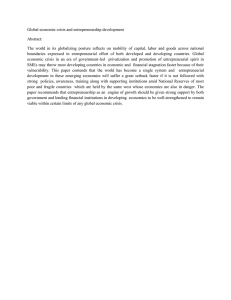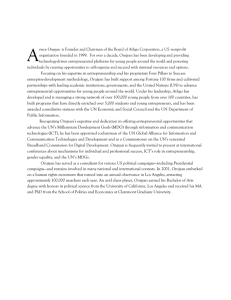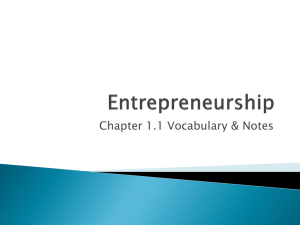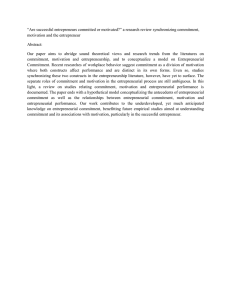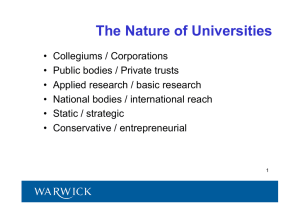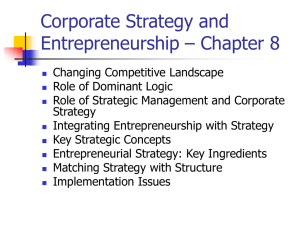COEUR WORKSHOP MORNING CALL
advertisement
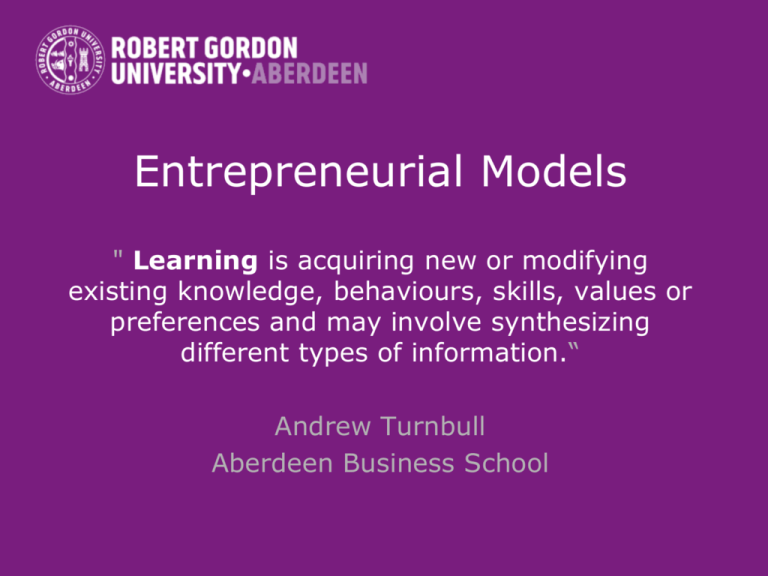
Entrepreneurial Models " Learning is acquiring new or modifying existing knowledge, behaviours, skills, values or preferences and may involve synthesizing different types of information.“ Andrew Turnbull Aberdeen Business School Model One A: Kuratko & Hodges The Creative Thinking Process Model One B: Churchill, N. The Opportunity Ladder • The new business venturing into the unknown • A small problem A becomes medium sized problem B, becomes large problem C • Each needs more in the way of new skills and relies less on current skills Model Two: Moore, C. The Entrepreneurial Process Model Three: Davidsson, P. Economic-Psychological Model Model Four: Gibb & Ritchie Mair Start Up Model Model Five: Ansoffian Model (see also ‘Pettigrew’s Triangle’) • Where are we now? Mission Aims, Goals, Objectives • Where are we going? Review of internal environment (strengths, weaknesses) and external environment (opportunities, threats) Strategic choice • How do we get there? Implementation Monitor Reappraisal Model Six: Eickhoff, M. & Jakob, C. The Business Evolution Process Business Development Creative or divergent Phase Analytical or convergent Phase Definition of the Problem Implementation Idea-Generation ? Idea-Evaluation ! Business Creativity Business Planning Model Seven: Birkinshaw, J. Freedom v. Control in Enterprise Growth Model Eight: Burns, P. Cycling Model Nine a: Greiner, L. Five Growth Stages Model Nine b: Scott & Bruce Managerial Stages Five Stages: Inception, Survival, Growth, Expansion, Maturity Management Role: Direct supervision, supervised supervision, delegation/ coordination, decentralisation, decentralisation Management Style: Entrepreneurial/individualistic, entrepreneurial/ administrative, entrepreneurial/coordinated, professional/administrative, watchdog Organisation Structure: Unstructured, simple, functional/centralised, functional/ decentralised, decentralised/functional/product Model Ten: McDonald, M. Knowledge Entrepreneurship Other Models! • Porter’s 5 Forces • Wickham’s ‘The Strategic Window (of Opportunity)’ (Chapter 22:Strategic Entrepreneurship, 4th ed. • Bygrave’s ‘Ten Ds’ • What can you find? Original is good!


